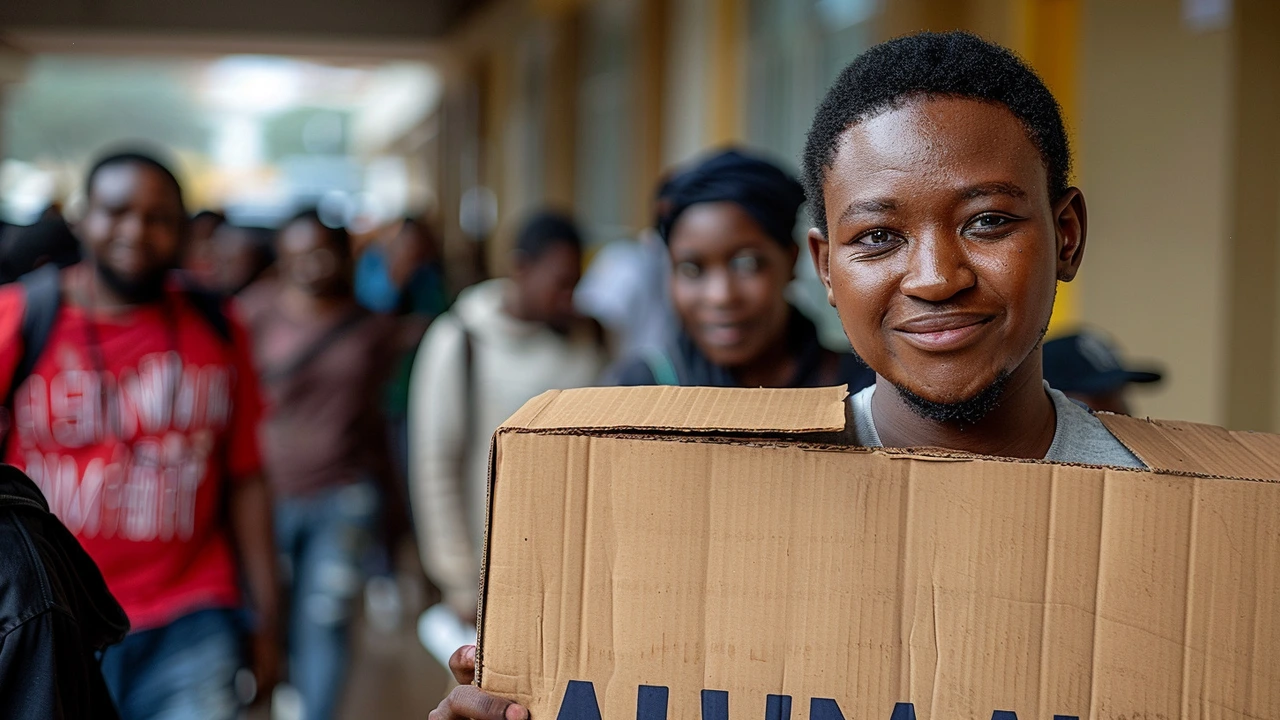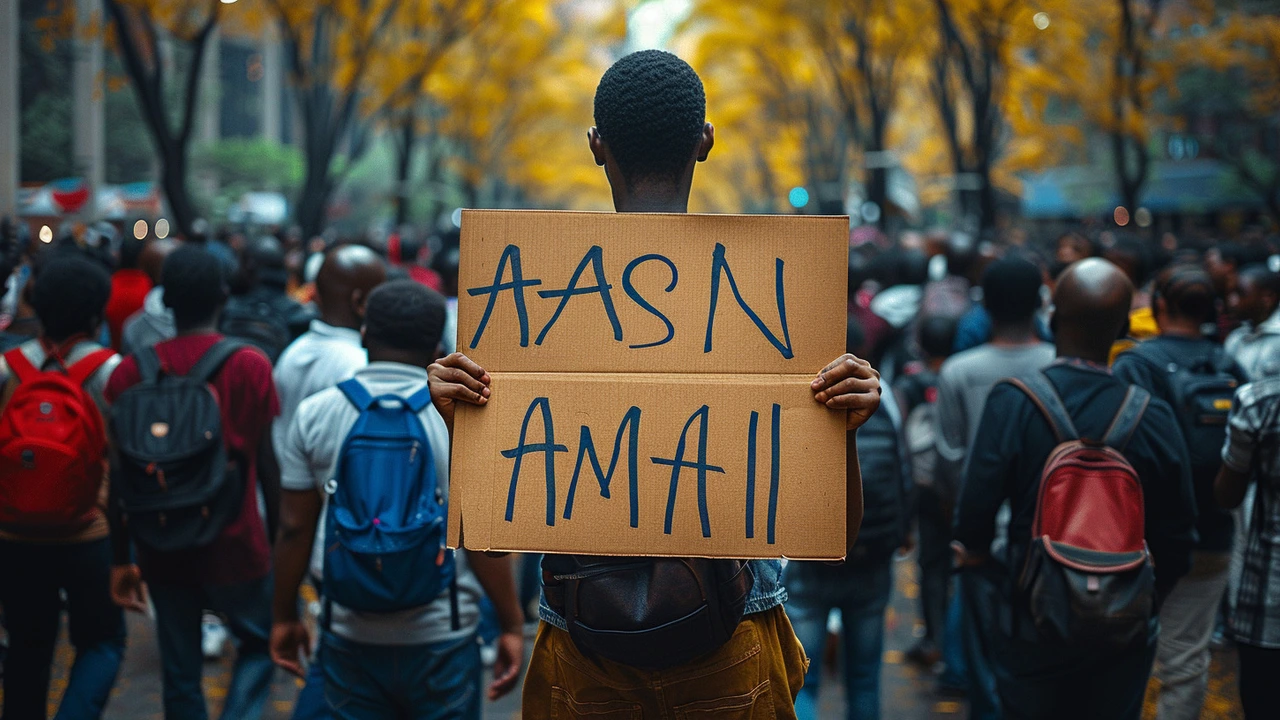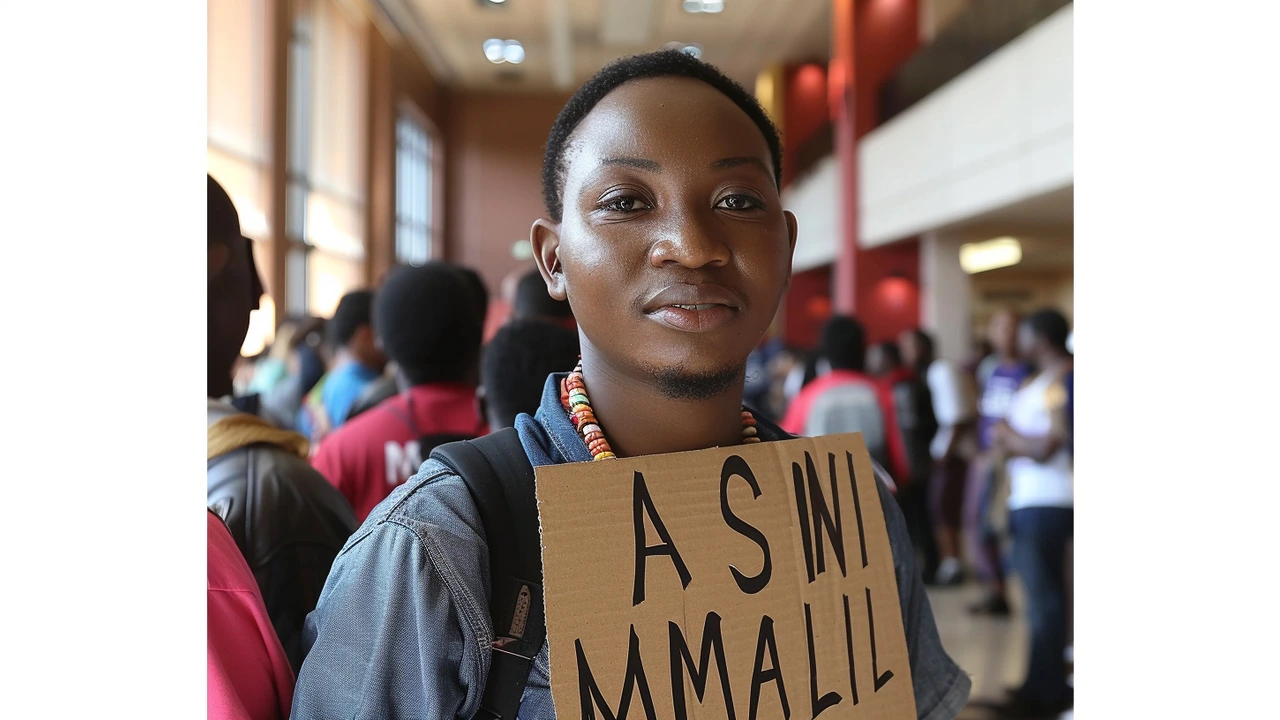
Introduction to the Crisis
Keamogetswe Masike has become the face of an urgent fight against the funding crisis that is threatening the academic careers and livelihoods of thousands of students across South Africa. Masike, a committed student leader, is at the forefront of this battle, highlighting the incompetence and corruption plaguing the National Student Financial Aid Scheme (NSFAS). The crisis has left many students stranded without rent payments for months, creating a dire situation.
Approximately 2,000 students from various institutions have reached out to Masike, seeking help as they face eviction from their lodgings. Among these students is Zandile, who studies at the University of KwaZulu-Natal (UKZN). Zandile’s story is heart-wrenching; she has been battling the financial strain brought by the non-payment of her rental allowances, and she is now at serious risk of eviction. Masike insists that the root cause of these issues is the rampant corruption within NSFAS, which, he argues, is severely hampering the scheme’s ability to effectively fulfill its obligations.
A Nationwide Struggle
The challenges facing these students are not confined to UKZN alone. The crisis has spread to institutes like the Tshwane University of Technology (TUT) and others nationwide. The breadth of the crisis highlights systemic issues within NSFAS that need urgent attention. Stories like Zandile’s are tragically common, with numerous students conveying tales of financial hardship and the anxiety of potential homelessness.
NSFAS, created to assist underprivileged students in accessing higher education, seems to have become ensnared in a cycle of inefficiency. Students are now demanding accountability and swift action to address the immediate crisis. According to Masike, the organization's failure to execute timely payments points to deeper, systemic issues of mismanagement and corruption that require immediate intervention.

Corruption Accusations
Masike’s accusations of corruption within NSFAS are grave and point to a need for an extensive investigation. He believes that the organization's current management structure is deeply flawed and riddled with dishonest practices. This corruption, he details, not only fuels delays but also diverts much-needed funds away from the students who rely on them. The result is a vicious cycle where the primary losers are the students meant to be supported.
Corruption in public institutions is not a new paradigm in South Africa, but the direct impact on students’ lives in this instance is particularly alarming. The students Masike represents are fighting for their right to education under extreme duress. The disarray within NSFAS threatens their academic pursuits and mental well-being.
NSFAS’ Response
Amid mounting pressure from students and the public, NSFAS has acknowledged the ongoing issues through a series of posts on social media platforms. The organization has publicly asked landlords to avoid evicting students, pleading for patience while they attempt to resolve the payment backlog. However, these assurances are cold comfort to students who find themselves on the brink of eviction with nowhere else to turn.
For many, these promises seem insufficient and are increasingly viewed as empty. Students and their families are demanding more tangible actions and real solutions. As the crisis unfolds, the reputation and efficacy of NSFAS are under intense scrutiny.

The Human Cost
The stories emerging from this crisis are compelling and tragic. Students like Zandile face the stark reality of eviction, exacerbating an already stressful academic life. They are forced to choose between education and having a safe place to live—a choice no student should ever have to make. The human impact of this crisis cannot be overstated. It's a deeply personal and emotional battle for those involved, and the stakes could not be higher.
Many of these students came from disadvantaged backgrounds. For them, NSFAS represented a lifeline, a tangible chance to break the cycle of poverty through education. The current failures of the scheme, therefore, do not just represent administrative oversights but potential disruptions to the futures of these young people.
The Call to Action
Masike is not alone in the call for action. Students and activists across the country are voicing out against the incompetence and apparent corruption within NSFAS. They are calling for accountability, transparency, and immediate reforms to ensure that students receive the support they need and deserve. The future of thousands depends on these changes, and the urgency is not lost on those in the midst of this struggle.
Advocates are emphasizing the need for a thorough audit of NSFAS operations to identify and address the root causes of the crisis. They believe such measures are essential not just for current crises but to ensure the long-term stability and credibility of the financial aid system. The haunting question remains: how many more students must suffer before meaningful action is taken?

Concluding Thoughts
Masike’s fight is emblematic of a broader struggle within South Africa’s educational landscape. The crisis at NSFAS highlights the urgent need for systemic reform to protect the future prospects of students nationwide. As the situation develops, the hope remains that swift and decisive action will follow, enabling students to focus on their education without the gnawing fear of homelessness or financial ruin.
The message from students is clear: they need an accountable and transparent system that ensures timely and fair disbursement of funds. Only by addressing the corruption and inefficiencies within NSFAS can the nation hope to fulfill its promise of accessible education for all.





